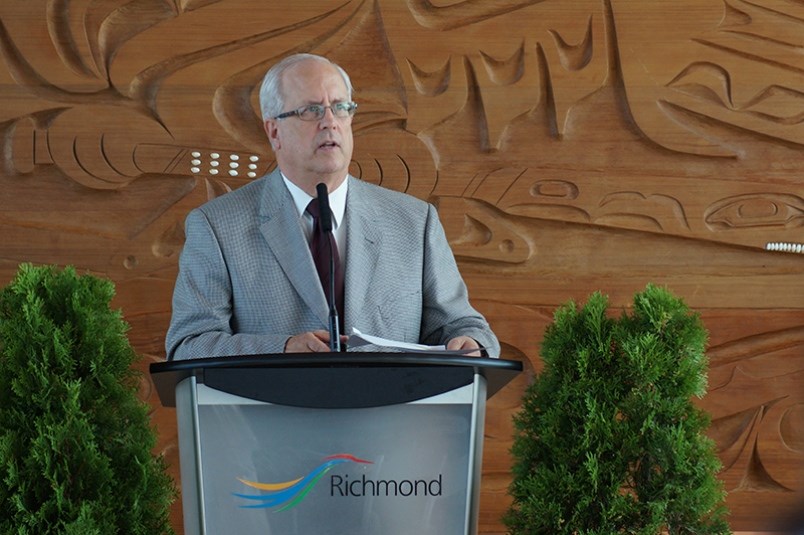The B.C. Urban Mayors’ Caucus, which is described as an informal non-partisan group, includes the mayors of big cities such as Vancouver, Surrey and Victoria but also mayors in Prince George, Kelowna and Abbotsford.
“These crises existed before COVID-19 but have been exacerbated by a toxic drug supply, the increased level of pandemic-related homelessness and encampments, and increasing stigma and anger from some members of our communities,” said Vancouver Mayor Kennedy Stewart in a news conference conducted via Zoom.
“Our businesses, which are already struggling from the economic impacts of COVID-19, are facing new challenges as a result of higher rates of social disorder and unpredictable, sometimes violent behavior from people in crisis.”
Kelowna Mayor Colin Basran acknowledged investments made by the provincial government in affordable housing, but said many residents still face stress and uncertainty related to their housing situations.
“Young families can’t afford to buy homes in some communities,” Basran said.
“Seniors living in market rental units have pensions that can’t keep pace with rent increases. Low wage workers are forced to commute long distances to access their jobs in our cities, severely impacting their quality of life.”
Calling it a blueprint for B.C’s urban future, the mayors also called for better public transit and a new fiscal relationship with the provincial government to provide municipalities with a broader range of funding tools.
Richmond Mayor Malcolm Brodie said affordable, reliable and accessible public transit is critical to the economic, social and environmental future of B.C. communities. Prior to the pandemic, Brodie said, transit ridership across the province was growing faster than anywhere in North America.
“Although the pandemic has cut transit ridership by over 50 per cent and devastated the financial stability of TransLink, BC Transit and BC Ferries, this setback is temporary,” he said.
For B.C. cities to remain competitive with counterparts in the rest of Canada and the world in a post-pandemic economy, Brodie said, “we must keep building transit-friendly communities that continuously invest in high quality transit that reduces road congestion, GHG emissions, keep our roads moving efficiently on limited road space and offer an affordable transportation mode to all residents, especially those who have no other option.”
Victoria Mayor Lisa Helps said the pandemic has made it clear that the fiscal framework between cities and the provincial government, which leaves municipalities largely reliant on property taxes for funding, is “wholly inadequate to meet the challenges and opportunities facing us as cities in the 21st century.”
“As city leaders, we’ve been on the frontlines responding to COVID-19 without the resources to provide the services needed to keep our most vulnerable residents healthy and safe, while at the same time offer additional supports to businesses and neighbourhoods most impacted by pandemic-driven challenges,” Helps said.
The mayors’ demands of provincial parties, which have yet to roll out their full platforms in advance of the Oct. 24 election, are:
On mental health, substance use and treatment:
• Immediately expand the availability of the full range of substance use and mental health treatment and recovery options in our communities for both youth and adults, including appropriate facilities for those with complex needs. We need treatment on demand so people get it when they need it. We need action in months, not years.
• Make the recent public health order regarding expanding the number of health professionals authorized to prescribe safer pharmaceutical alternatives to the toxic drug supply permanent and urge all relevant regulatory colleges to scale up access to safer pharmaceutical alternatives for people at risk across B.C.
• While reviewing changes to the Police Act, consider alternative approaches for responding to mental health and substance use calls in the community on a 24/7 basis.
On affordable housing:
• Accelerate investments to affordable, supportive and social housing on a priority basis, and simplify the funding application process.
• Continue to ensure there is a regulatory and taxation climate that prioritizes housing for people who live and work in our cities, rather than housing as an investment.
• Ensure there is a rental housing system that balances the security of tenure for renters with the needs of landlords.
On public transit:
• Complete the financial recovery of the projected long-term losses facing TransLink, BC Transit and BC Ferries once the recently announced Safe Restart operating funding expires in late-2021, so that service levels are maintained, allowing ridership to quickly bounce back through the pandemic and the economic recovery period.
• Redesign the transit funding model that has relied too heavily on regressive transit fares and local property taxes to one that is more resilient and equitable.
• Prepare for a quick return to the transit expansion our cities will need to maintain competitiveness by ensuring that current planning processes are not paused due to the pandemic. Investments in planning studies and developing business cases now will ensure future service expansion and capital investments are ready to go in the rebuilding stage.
• Make the investments required over the coming decade to support BC Transit and TransLink’s ambitious low-carbon fleet plans.
On a new fiscal relationship:
• Convene an implementation committee comprised of local and provincial government officials to revisit and implement relevant recommendations in the Union of B.C. Municipalities report, Strong Fiscal Futures: A Blueprint for Strengthening BC Local Government’s Finance System.
• Pursue municipal finance reform to provide municipalities with a broader range of sustainable, predictable and reliable funding tools in order to address increasing financial pressures related to a growing asset base, aging infrastructure, climate change, housing challenges and the opioid crisis as per the recommendation from the Select Standing Committee on Finance and Government Services.
@Howellings



